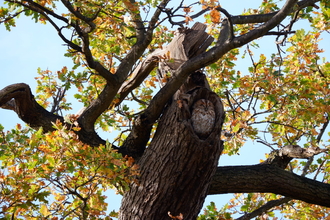Slugs, really, I hear you say? Bear with me on this one, not only are they a really important food source for many of species such as hedgehogs, newts, frogs, slow worms, several species of birds and invertebrates such as the violet ground beetle and devil’s coach horse but they are, I think, a really interesting species in their own right, especially this time of year.
As temperatures plummet and we see frost appear over the winter months, some species of slugs such as the grey garden slug are well adapted to survive these conditions. Grey garden slugs, as well as some other species, can survive exposure to frost, partially freezing and the presence of ice crystals in their cellular tissues. Slug eggs can also survive over the winter due to super cooling, a process where some slugs lower their normal freezing points with both eggs and slugs having been found to survive temperature as low as -3.50C.
Some species of slugs aren’t able to survive such low temperatures however and are only active in temperatures over 50c or above and will hibernate over the colder months burying down further in the soil or will find suitable hibernation places under logs and leaf piles, paving slabs and other locations where temperatures won’t drop below 00c.
As our winters become milder due to the impacts of climate change however, we can expect to see an increase in slug numbers as they continue to breed over the winter laying eggs throughout as the warm weather doesn't trigger slugs to enter hibernation.
Why not go in search for our hardy slug species this winter in your garden, green space or local park and see if you can see any still out and about and spare them a thought from inside your cosy winter coats and jackets. I know next time I see one out and about in winter I will look at them with new sense of admiration as I shiver at the thought of them freezing.


